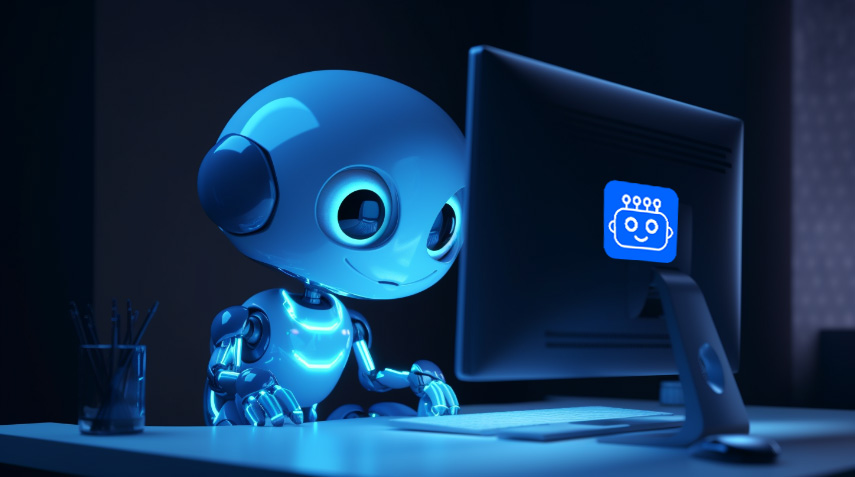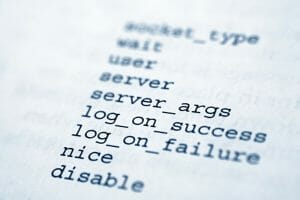As AI is zooming ahead like a rocket, people are super curious, especially about the biggie: “Can ChatGPT Write An Essay With References?”
This question’s got folks itching for a more detailed look at how AI could be a game-changer in academic writing.
In this all-in-one guide, I’m gonna break down the pros and cons of making ChatGPT your go-to for essay crafting.

Try these new AI-powered tools:
- 5 Best AI Detectors To Unmask AI-Written Content With Accuracy
- 5 Best AI Writers To Boost Your Productivity And Content Quality.
- This "Secret AI Writer" Can Bypass AI Detection Like A Pro.
By connecting the dots between tech and the classroom, I’ll take a good, hard look at how AI comes into play when you’re writing essays, why it’s key to have a human in the mix, and what this all could mean for education’s future.
Article At-A-Glance
- Using ChatGPT for your essay could save you a chunk of time and give you some pretty in-depth analysis. But, let’s pump the brakes a sec—there are some red flags like the risk of plagiarism and getting too hooked on gadgets.
- Adding references with ChatGPT can up your essay’s cred and keep you in the clear academically. Still, don’t just take it at face value—you’ve gotta double-check those citations to make sure they’re on point.
- If you wanna get the full benefit of ChatGPT, you’re gonna wanna mix it with some human oversight, critical thinking, and some good old-fashioned editing to root out any mistakes or biases.
- As for the ethics of AI writing, issues like bias and plagiarism pop up, highlighting just how vital the human touch is in the essay writing equation.
Table Of Contents
The Good, The Bad, And The AI: ChatGPT For Essay Writing
Sure, ChatGPT can feel like a lifesaver, but let’s keep it real—it’s got its issues too.
Pros:
- Using ChatGPT for your essays can be a major time-saver. It’s like having a mini research team in your computer that can crank out ideas from multiple angles way faster than you could ever Google them.
- Another perk? This nifty tool does its best to dodge plagiarism, whipping up fresh sentences each time you use it.
- Teachers can even get in on the action, bringing a techy twist to the classroom that might actually make students want to engage.
- Plus, ChatGPT can map out an essay structure for you in no time, easing that “paper due tomorrow” panic.
Cons:
- Relying too much on ChatGPT could backfire. It’s like using training wheels; you don’t want to forget how to ride the bike altogether.
- Watch out for the plagiarism trap, too. Copy-pasting can happen, and it’s not a good look.
- ChatGPT isn’t exactly breaking news central—it can’t pull in real-time info, so it has its limits there.
- Also, let’s talk ethics. Leaning on an AI tool for your homework opens up a whole can of worms about what’s fair game and what’s not.
References Make The Essay: Using ChatGPT For Citations
We all know that an essay without references is like a ship without a compass—it lacks direction and credibility.
Citations add some real muscle to your arguments and show you’ve done your homework.
Citations add some real muscle to your arguments and show you’ve done your homework.
So, how can ChatGPT help you rock those references?
How To Use ChatGPT For Incorporating References
Here’s the scoop on getting those citations in using ChatGPT:
- First off, figure out which parts of your essay need that extra oomph from a good source.
- Use ChatGPT to dig up the kind of info that gives those key points some extra punch.
- Ask ChatGPT to fold those references into neat, tight sentences.
- Make sure any direct quotes are in quotes and properly credited. No shortcuts here.
- Double-check the facts and sources, ’cause nothing hurts an essay like a wonky reference.
- Capitalize on ChatGPT’s knack for formatting references to knock out that final reference list.
Citations: Trust But Verify
Want to make sure your citations are up to snuff? Here’s how:
- Double-check what ChatGPT gives you with a legit source or style guide, just to be sure.
- Make sure the citation style matches what you’re supposed to use—APA, MLA, Chicago, you name it.
- Cross-check the ChatGPT info with a couple of other sources to make sure it’s not feeding you fake news.
- Whether you’re quoting or paraphrasing, give credit where credit’s due. Mark those quotes and cite your paraphrases.
- Pop in some in-text citations for all the stuff you referenced, and be precise with those page numbers if you can.
- Lastly, build that reference list or bibliography with all the trimmings, making sure it follows the style guide to a T.
Wanna make sure your essay stays on the up and up? It’s super important to check for plagiarism. Although ChatGPT can help you write essays with references, you gotta be cautious about unintentional copying.
To make sure your ChatGPT-generated stuff doesn’t step on someone else’s toes, use dependable plagiarism checkers.
To make sure your ChatGPT-generated stuff doesn’t step on someone else’s toes, use dependable plagiarism checkers.
Just keep in mind that while ChatGPT can give you references, you’ll still wanna double-check ’em to make sure they’re spot-on and correctly cited.
Ways To Use ChatGPT For Crafting Top-Notch Essays
So you’re curious if ChatGPT can whip up high-quality essays, huh? You betcha, as long as you keep a few key pointers in mind.
To get the most bang for your buck from this AI writing tool, check out these handy tips:
Get The Creative Juices Flowing: Generating Ideas
Kick things off by brainstorming some killer topics. ChatGPT can help students big time in generating fresh and intriguing ideas for essays.
Toss in some keywords or related themes, and watch as ChatGPT spits out a slew of cool ideas that you might’ve never even thought about.
Trust me, tapping into ChatGPT for idea generation will make your essay more compelling and jam-packed with all the stuff your teacher wants to see.
Speed Up Your Research: Finding Sources In A Jiffy
One of the ace features when you’re using ChatGPT for essay writing is this tool’s ability to evaluate and find sources faster than you can say “bibliography.”
Usually, you’d be glued to your screen for hours, combing through websites and articles to find the gems.
ChatGPT, on the other hand, does a speed run through various online platforms and coughs up what you’re after. The big win? Time saved.
ChatGPT, on the other hand, does a speed run through various online platforms and coughs up what you’re after. The big win? Time saved.
If you’ve got ChatGPT as your sidekick, you’re cutting out hours of manual labor searching for the right material. That’s extra time in your pocket to refine that essay, go over it a few times, or even kick back and take a breather.
Get Organized: Creating Your Outline With ChatGPT
When you’re ready to hit the ground running, an outline can be a lifesaver. Here’s a quick how-to on drafting one with ChatGPT:
- Kick off with a clear and to-the-point essay prompt or topic.
- Fire up ChatGPT and ask it to give you a basic outline.
- Take a look and see at what ChatGPT comes up with and make any tweaks you need.
- Use this outline as a roadmap for your essay, laying out your main points and the deets that back ’em up.
- Dive deeper into each section, plugging in more details and examples.
- Make sure your outline is solid, and logically flowing from one point to the next.
Jazz Up Your Title For Maximum Impact
If you’re looking to turn heads with your essay, you’ve got to kick things off with a title that pops. Using ChatGPT can give you a leg up in brainstorming for that killer title.
The right title doesn’t just grab eyeballs; it’s your first impression and sets the vibe for the whole piece.
You can churn out a bunch of ideas, play with words, and finally land on something that nails what your essay is all about—all thanks to ChatGPT.
Nail Down Your Keywords
When it comes to writing A-grade essays with references, it’s super important to get your hands on the right keywords. They help zero in on your topic and find the info that’s gonna beef up your argument.
Lucky for you, ChatGPT can make that a breeze. It can whip up a list of relevant keywords connected to your topic, saving you time and making your research more efficient.
Just plug in those keywords, and you’re set to dig up some top-notch sources for your essay. All in all, finding your key terms through ChatGPT streamlines the whole “essay with references” ordeal.
The Nitty-Gritty: ChatGPT’s Limits And Considerations
Before you jump right into using ChatGPT for your next essay project, hold up. There are some limitations and things you should consider.
Watch Out for Slip-Ups And Bias
ChatGPT ain’t perfect, folks. It can sometimes spit out stuff that’s not 100% accurate or even shows a bit of bias. Maybe it’s a typo, maybe it’s a grammatical blunder—either way, it’s on you to double-check.
Also, the tech behind ChatGPT has its own limitations, which means it might churn out content that’s skewed or off the mark.
Also, the tech behind ChatGPT has its own limitations, which means it might churn out content that’s skewed or off the mark.
Do your own research to fact-check and look for bias in what AI, like ChatGPT, is serving you. And let’s not forget about the risks of plagiarism and questionable content—those are concerns too.
Humans Still Rule: Why You Need To Edit
You can’t just set ChatGPT loose and forget about it; you’ve gotta bring in some human smarts to fine-tune what the AI puts out. ChatGPT has some gaps—it doesn’t fully get complex topics and might even be working from data that’s got its own set of biases.
Having a real person in the loop to edit means you can catch those errors and clean things up. It’s the human touch that makes sure your AI-generated content is up to snuff, reliable, and meets those academic standards we all know and love.
So, sure, ChatGPT is a nifty tool for writing, but to keep things on the straight and narrow, you’ll want to team it up with some good old-fashioned human oversight.
When you’re dabbling in AI-generated content with references, the ethics game can get a little sticky. One red flag is the chance of the AI, like ChatGPT, spitting out biased info. See, these AI systems get their smarts from existing data. If that data’s got some slant, the AI might just pass it on.
So, it’s on us to question how fair or accurate this AI-generated material really is.
Another ethical bump in the road is about giving credit where credit’s due. Even if ChatGPT can cook up citations for you, double-checking their accuracy is a must.
Plagiarism is still a big no-no, even in the AI age.
Plagiarism is still a big no-no, even in the AI age.
In short, ethical smarts require a human touch when using AI-generated content with references. Before you stamp your name on that essay, make sure you’ve gone over the AI’s work with a fine-tooth comb.
Striking The Right Balance: Using ChatGPT In Your Essay Writing Endeavors
Wrapping things up, ChatGPT can totally give you a leg up in writing essays with references. But let’s not forget its blind spots. While AI can be a time-saver and even churn out some quality work, it’s not without its pitfalls—think accuracy, bias, and ethical do’s and don’ts.
So, you gotta tread carefully. Make sure you’re citing sources correctly and giving proper shoutouts where they’re due. Keep a human hand in the mix to keep things in check.
Bottom line: ChatGPT can be a solid sidekick in the writing process, as long as you pair it with careful human editing and verification. That’s how you keep things both efficient and on the level.
Meet our resident tech wizard, Steve the AI Guy. Now, before you get any wild ideas, let’s clear up one thing – he’s 100% human! I mean, he’s got the work history to prove it. He spent a decade diving into the deep end of the tech industry doing business intelligence work, splashing around with two of the world’s largest business consulting companies, Deloitte and Ernst & Young. Learn More










